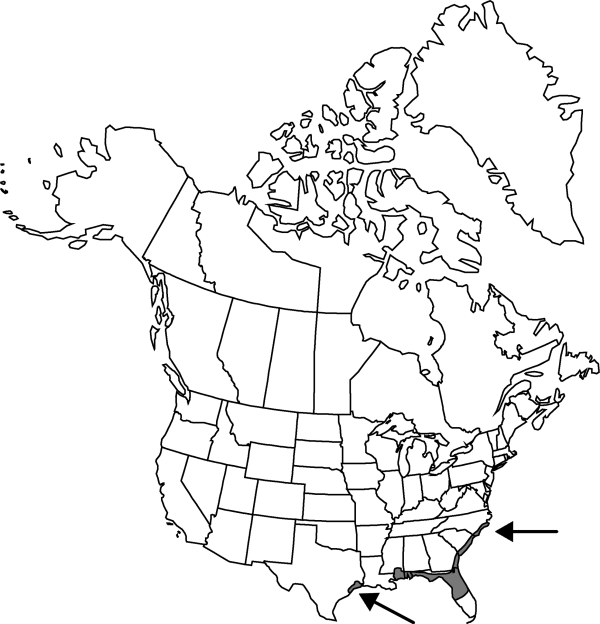Opuntia pusilla
Syn. Pl. Succ., 195. 1812.
Shrubs, creeping, often forming mats, trailing, to 0.1 m. Stem segments easily detached, green, purplish red under stress, flattened, elliptic to linear, sometimes subcylindric (to subspheric), 2.5–5 (–8) × 1.2–2.5 cm, tuberculate, glabrous; areoles 2–5 per diagonal row across midstem segment, subcircular, 2–3 mm diam.; wool tan to gray. Spines (0–) 1–2 (–4) per areole, in distal 3/4 of stem segment areoles (to nearly spineless), porrect to spreading, redbrown, aging gray, stout, straight, terete, to 30 mm, strongly barbed. Glochids in crescent at adaxial edge of areole, pale-yellow, aging brown, to 3 mm, longest at areole apex. Flowers: inner tepals yellow throughout, 20–30 mm; filaments and anthers yellow; style and stigma lobes white. Fruits green becoming red-purple at late maturity, barrel-shaped, 18–30 × 12–20 mm, fleshy, glabrous, spineless; areoles 8–16. Seeds tan, subcircular, flattened, 4–6 mm diam.; girdle slightly protruding. 2n = 44.
Phenology: Flowering spring (Apr–May).
Habitat: Dune and pine scrub, primarily coastal, sandy openings, dunes, or rocky outcrops
Elevation: 0-100 m
Distribution

Ala., Fla., Ga., Miss., N.C., S.C., Tex.
Discussion
Selected References
None.